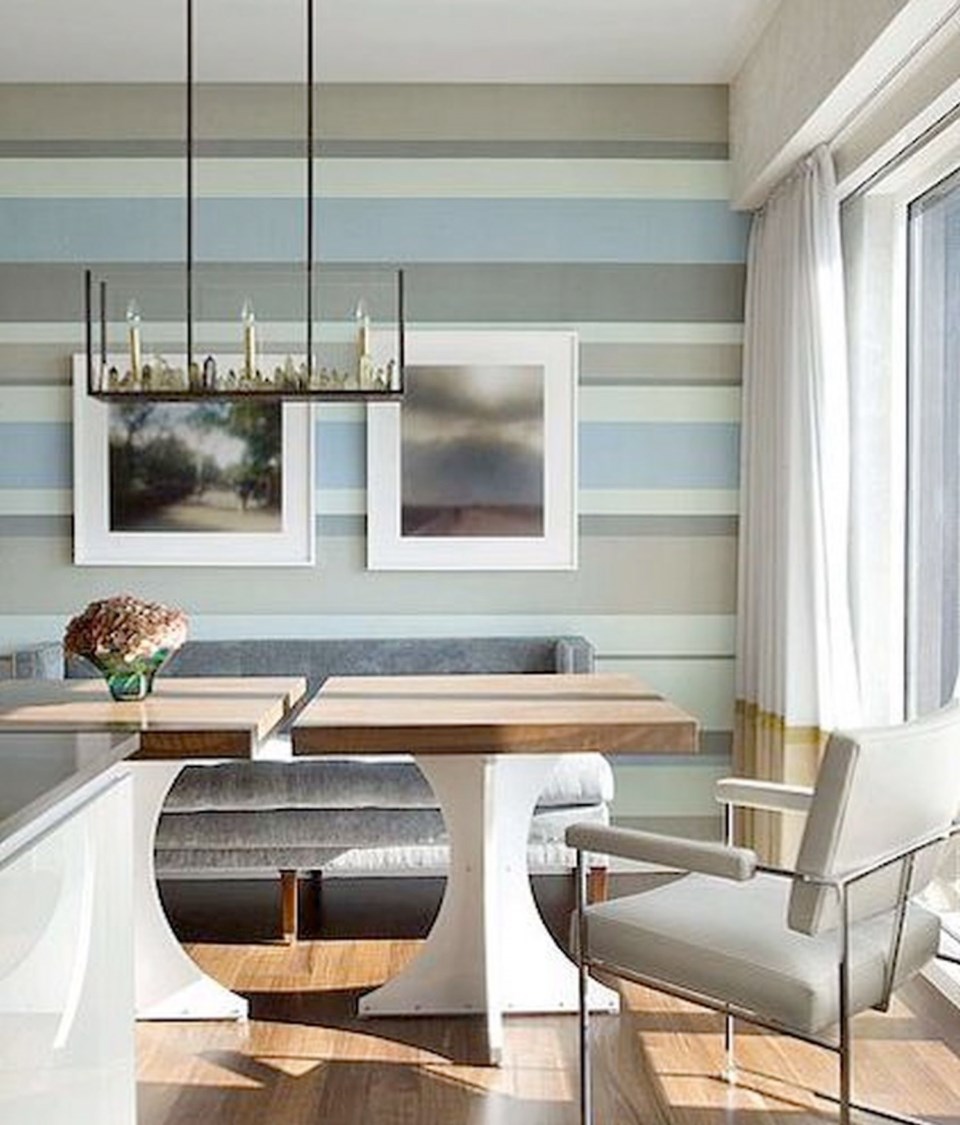Dear Debbie: I am a fan of stripes, as becomes obvious if anyone looks in my closet. Wearing them is one thing, but is it too much to decorate a wall when the space is quite small?
Cynthia
It’s a great idea to indulge in your passion for stripes as a decorative element in your home.
Stripes are so versatile that you can choose the perfect combination of colours and sizes to fit your mood and your space.
There are a few points to consider. Vertical stripes are most common, best suited to large rooms where the eye is drawn up. In these rooms, stripes should be wide. Pin-stripes would be too busy.
For a small room, you can have fun with stripes of various sizes. Consider horizontal stripes, too. They will make the room appear larger. Horizontal stripes provide a contemporary feel, youthful and fresh.
You can paint them on the wall with lots of measuring and painter’s tape.
I’d look for wallpaper, not too expensive, if you are decorating a small room or decide on a focal wall.
The bigger the contrast between stripes, the stronger the impact. Bold is fun, but can be tiring.
Also, think about what else is going on. Stripes mix with all patterns, but don’t make the room too busy.
Thinking of a more subtle application for those stripes? The bedroom shown here, featured on decoist.com, combines a collection of materials that share a linear perspective.
Fine lines in the grass cloth provide warmth and texture on the walls. The bedspread incorporates matte and shiny stripes in the same golden hue.
Three contrasting bands on the overhead lamp are crisp accents. The carpet and the grid screen echo the geometric play. This is a restful room that champions the linear esthetic.
Another option is to introduce your love of stripes with painted furniture — a tabletop, wooden chair backs, lampshades. Why not start with striped pillows and a blanket and see where it takes you?
Dear Debbie: We are doing some painting at our cottage before we close it up for the winter. My partner thinks it’s OK to buy the most inexpensive paint, since we only use the cottage in the summer. What is your view?
Martina
No matter what the project, I recommend purchasing the best paint you can afford. You get what you pay for.
High-quality paint is more durable, lasts longer, covers better and is easier to work with. Ask why the paint is on sale. If it’s end-of-line or has already been coloured, but it’s a good quality and suits your taste, then you can save.
If you are applying a whitewash rather than a solid coat of paint, you can use an inexpensive paint. Mix one part white paint with two parts water. Brush it on the wood in the direction of the grain. It will brighten the surface, while still showing the wood grain.
September is generally a good month to paint, as the days are cooler and the humidity is low. For exterior paint jobs, time your work for when it has been dry for a few days so surfaces are not holding moisture. Otherwise, the paint will peel.
If possible, avoid painting when the sun is shining directly onto the surface.
Written by Debbie Travis and Barbara Dingle. Email decorating questions to [email protected]. Follow Debbie at instagram.com/debbie_travis and debbietravis.com.



